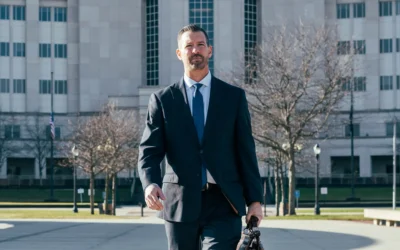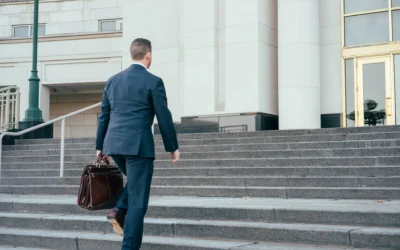Leading Criminal Defense Law Firm in Lansing, MI
Dependable legal support to protect your rights and freedom. O’Keefe Law is committed to providing effective representation for your criminal defense needs.

Trusted By Hundreds For Criminal Defense

Your Defense Starts Here
At O’Keefe Law, we understand the complexities of criminal defense and are committed to providing you with the steadfast support you need. Our experienced team navigates the intricacies of federal charges, drug crimes, DUI, assault charges, white collar crime, and cyber crimes with precision.


Invest In Your Future With An Attorney You Can Trust
Facing legal challenges can be overwhelming, but you’re not alone. With us by your side, you’re not only investing in legal representation but also in the hope and reassurance that comes with knowing you have a dedicated ally throughout your journey. Your future is worth the investment, and we are here to help you every step of the way.
Invest In Your Future With An Attorney You Can Trust
Facing legal challenges can be overwhelming, but you’re not alone. With us by your side, you’re not only investing in legal representation but also in the hope and reassurance that comes with knowing you have a dedicated ally throughout your journey. Your future is worth the investment, and we are here to help you every step of the way.

HOW WE CAN HELP YOU
Areas of Practice
Federal Charges
Facing federal charges? Attorney O’Keefe has a proven track record in handling federal charges with precision and expertise.
Drug Crimes
Dealing with drug charges? We focus on safeguarding your rights, exploring positive resolutions tailored to your situation.
DUI
A DUI charge is nothing to mess around with. Let us guide you through it, providing the support and strategy you need.
Assault Charges
Violent crimes and assaults carry significant weight in Michigan. Whether it’s a misdemeanor or a felony, mounting a strong defense is crucial.
White Collar Crimes
Whether you’re dealing with financial allegations or corporate matters, a robust defense is crucial when facing white-collar crimes in Michigan.
Cyber Crimes
Facing cyber crimes in Michigan? Get straightforward legal support for online fraud, digital offenses and anything else.
EXPERTISE
Why Choose O’Keefe Law
O'Keefe has tried 300+ jury trials
O’Keefe’s extensive experience in the courtroom underscores a seasoned and adept approach to every case.
20+ Years Of Experience
With over 20 years of experience, our commitment to excellence is reflected in the guidance and unwavering advocacy we provide to our clients.
Board Certified Criminal Attorney
Patrick O’Keefe is one of only three Michigan board-certified criminal trial specialists. His experience, in both state and federal courts, provides him with unparalleled expertise in criminal law.

Case Studies
Client Success Stories
Jane OLF Doe v. Michigan State University/USAG
Represented late victim of former Dr. Lawrence Nassar, MSU, and USA Gymnastics (USAG). Although shehad passed away many years prior, O’Keefe Law Firm secured a settlement over $1.25 Million on behalf of her parents.
State v. Parker Surbrook – Police Defense Case
Defendant police officer charged with assault with a dangerous weapon, to wit, his Michigan State Police canine. After a one-week jury trial in Ingham county, Trooper Surbrook is found not guilty. Check out this article from Lansing State Journal
U.S. v. John B.Y. Doe – Federal Case
Defendant charged with Wire Fraud and Computer Intrusion Causing Damage. After a one-week federal jury trial in the Western District of Michigan, client is found not guilty.

Patrick O'keefe
Criminal Defense Attorney
Lansing Criminal Defense Attorney
Meet Patrick William O’keefe
Meet Patrick William O’Keefe, the preeminent legal advocate in Lansing and one of Michigan’s distinguished board-certified trial attorneys. As the sole board-certified attorney in the Lansing area and one of just three in the entire state, Attorney O’Keefe stands out for his exceptional expertise and commitment to his clients.
In your pursuit of the best trial attorney, certification and experience are paramount, and Attorney Patrick William O’Keefe exemplifies both. His distinction as a board-certified attorney underscores his rigorous training and years of dedicated courtroom experience. Here, we understand that results matter, and Attorney O’Keefe’s unparalleled ability sets him apart—delivering outcomes for our clients with unmatched proficiency both inside and outside the courtroom.



